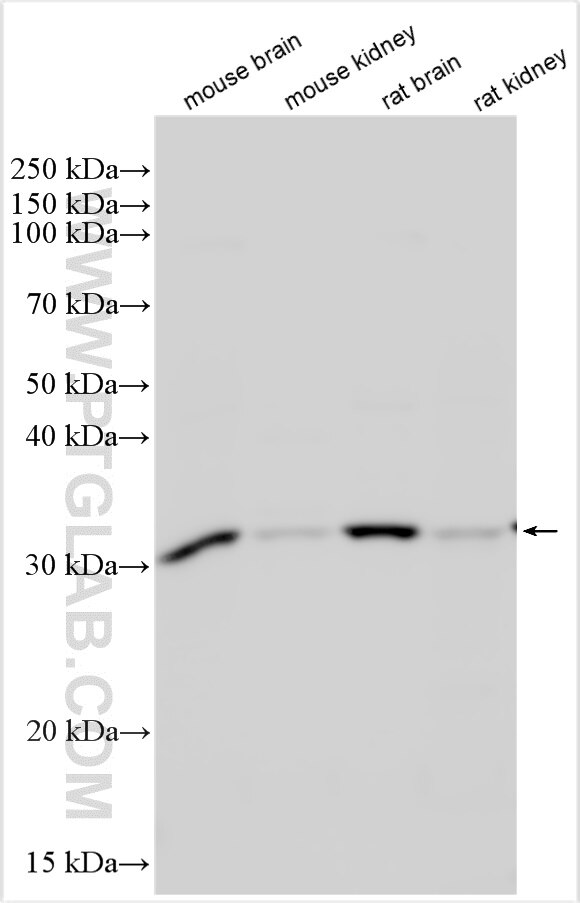Tested Applications
| Positive WB detected in | mouse brain tissue, mouse kidney tissue, rat brain tissue, rat kidney tissue |
Recommended dilution
| Application | Dilution |
|---|---|
| Western Blot (WB) | WB : 1:200-1:1000 |
| It is recommended that this reagent should be titrated in each testing system to obtain optimal results. | |
| Sample-dependent, Check data in validation data gallery. | |
Product Information
15933-1-AP targets TIPRL in WB, ELISA applications and shows reactivity with human, mouse, rat samples.
| Tested Reactivity | human, mouse, rat |
| Host / Isotype | Rabbit / IgG |
| Class | Polyclonal |
| Type | Antibody |
| Immunogen | TIPRL fusion protein Ag8780 Predict reactive species |
| Full Name | TIP41, TOR signaling pathway regulator-like (S. cerevisiae) |
| Calculated Molecular Weight | 178 aa, 20 kDa |
| Observed Molecular Weight | 33 kDa |
| GenBank Accession Number | BC009506 |
| Gene Symbol | TIPRL |
| Gene ID (NCBI) | 261726 |
| RRID | AB_3669227 |
| Conjugate | Unconjugated |
| Form | Liquid |
| Purification Method | Antigen affinity purification |
| UNIPROT ID | O75663 |
| Storage Buffer | PBS with 0.02% sodium azide and 50% glycerol , pH 7.3 |
| Storage Conditions | Store at -20°C. Stable for one year after shipment. Aliquoting is unnecessary for -20oC storage. 20ul sizes contain 0.1% BSA. |
Background Information
TIPRL, also known as TIP, TIP4, is an inhibitory regulator of protein phosphatase-2A (PP2A) , PP4, and PP6(PMID: 17384681). TIPRL, an evolutionarily conserved protein, plays a critical role in mediating γ-H2AX signal transduction upon DNA damage(PMID: 26717153).
Protocols
| Product Specific Protocols | |
|---|---|
| WB protocol for TIPRL antibody 15933-1-AP | Download protocol |
| Standard Protocols | |
|---|---|
| Click here to view our Standard Protocols |



